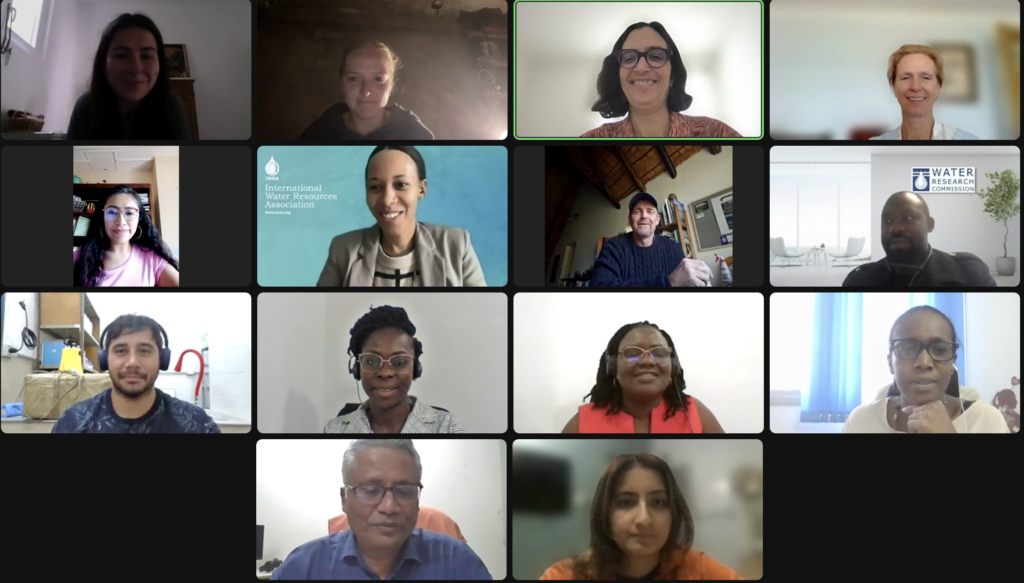” In the HRBA, people and communities are recognized as having a key role to play in the realization of their rights”.
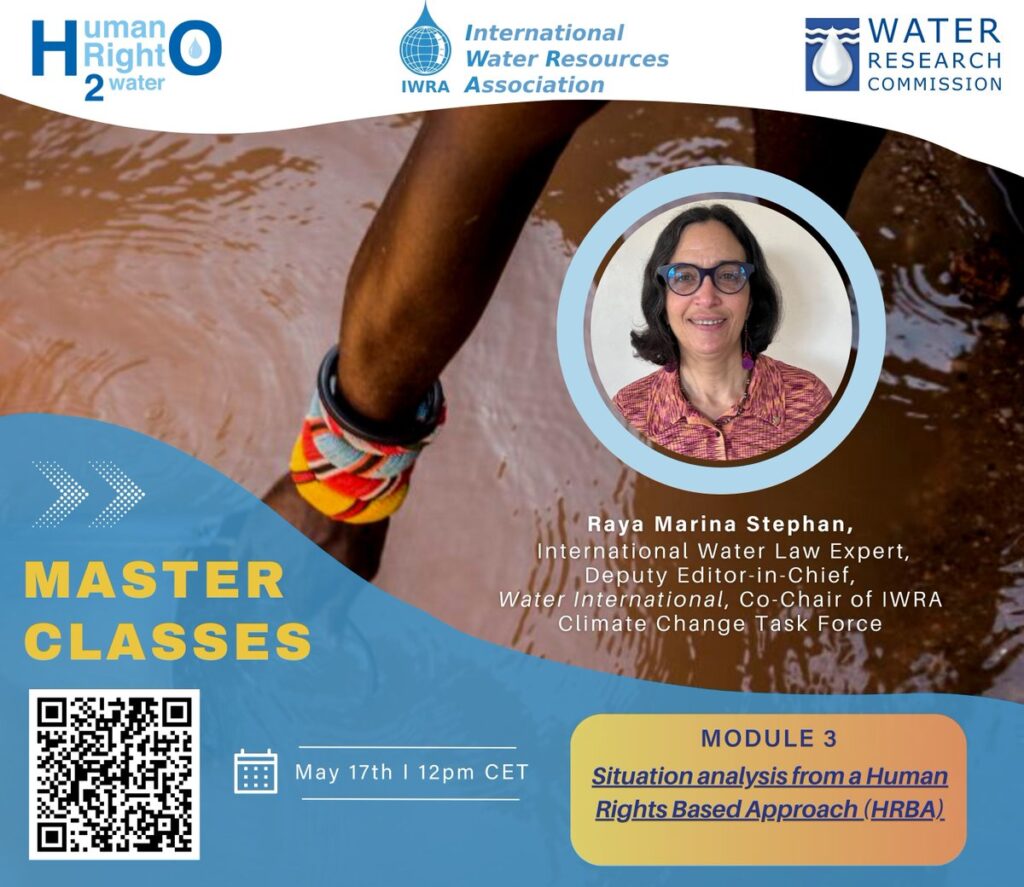
Module 3 of the Masterclass for Institutional Responsibility was held on Wednesday May 17th. The lecture and workshop was facilitated by Raya Marina Stephan, an international water law expert, and a member of HR2W. Raya focused on the benefits of integrating a Human Rights-Based Approach (HRBA) to a situation analysis.
165 people participated in this weeks’s lecture. The lecture was followed by a participative workshop in which members and partners from HR2W, IWRA and WRC worked through case studies for how to apply the HRBA.
If you wish to take part of the interactive workshop for this masterclass you can learn about how to become a member here. Members that join the full version of our masterclass (lecture + workshop) receive a certificate.
Ms. Stephan’s lecture focused on the benefits and differences of the HRBA compared to a more typical methodology. The HRBA is a set of measures to redress discriminatory practices and unjust distributions, with a focus on the most vulnerable people in society. It aims to ensure that there is respect, protection, and promotion of human rights for every single individual and that these are integrated into public policies and development programs.
“It focuses on building holistic processes and empowering individuals to claim their rights and on duty bearers (the states) to full-fill their human rights obligations”. Raya Stephan
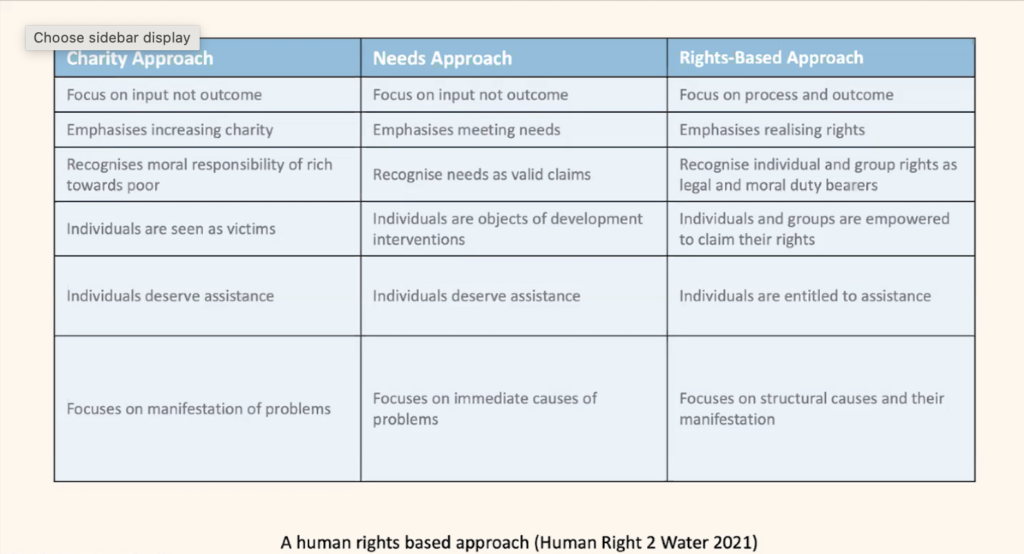

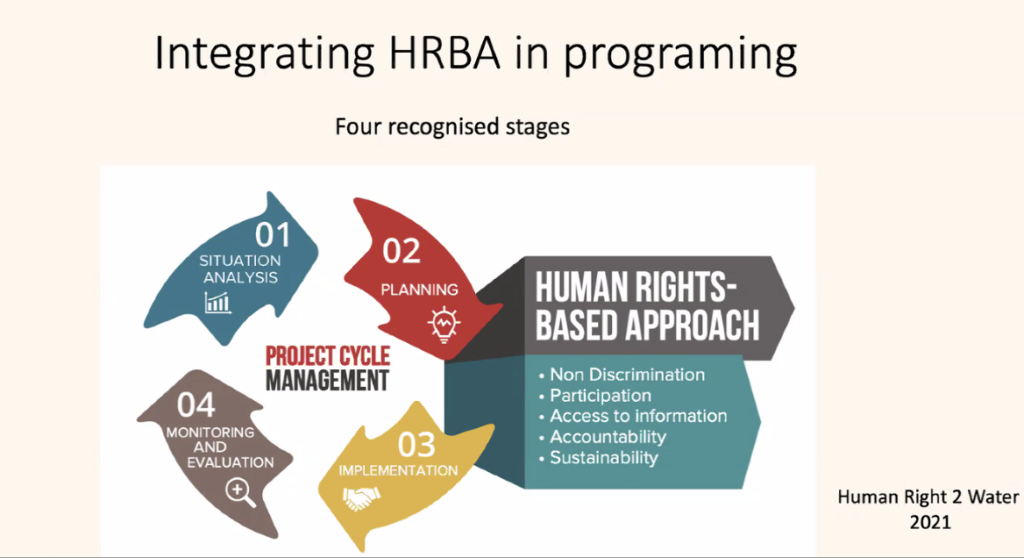
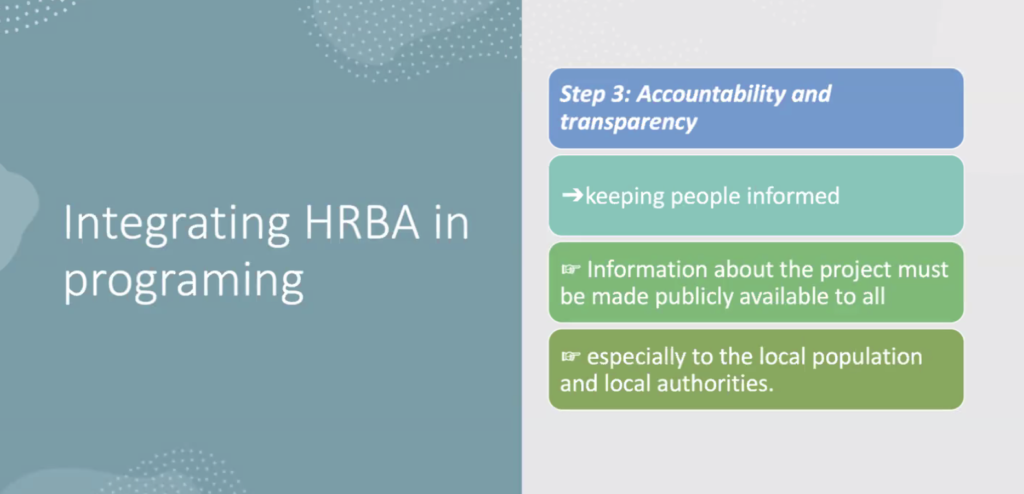
In the HRBA, people and communities no longer are passive recipients of assistance, instead, right-holders become actors in their own development. Public action becomes a way of implementing and sustaining rights for all and all the processes are just as important as the outcomes. Ms. Stephan gave a detailed explanation of the 4 steps that are needed to do a HRBA situation analysis:
- Recognise the issue
- Stakeholder mapping
- Casualty analysis
- Capacity gap analysis
The Situation Analysis is the first of four steps to integrate the HRBA in programming (see the image to the left). To access a more detailed account on how to implement a HRBA, you can read our Practical Guide to the HRBA in our publications section.
The interactive workshop allowed participants to apply the HRBA in a situation analysis. The two breakout groups analysed different human rights violations in water and sanitation case studies and worked through an understanding of the root causes. The workshop brought perspectives from Africa, Asia , Europe and Latin America into a constructive discussion on how to implement in practice.
